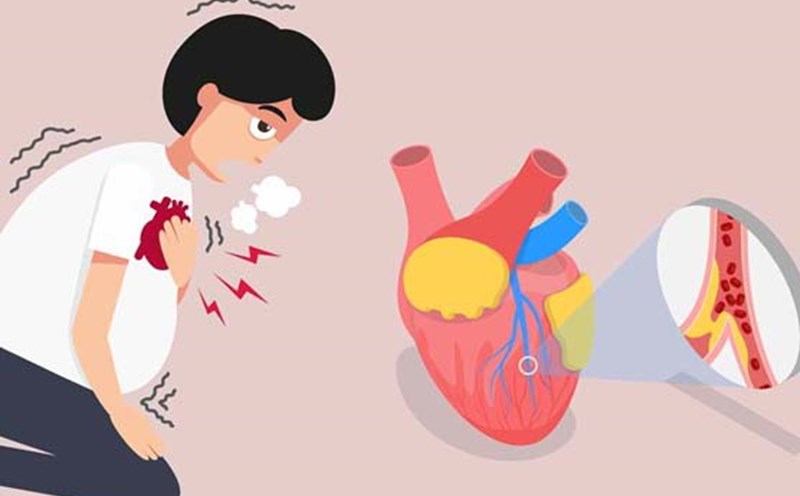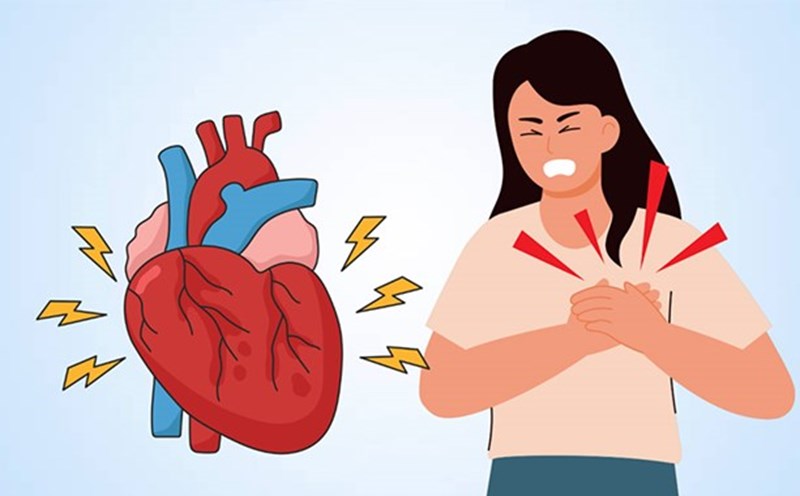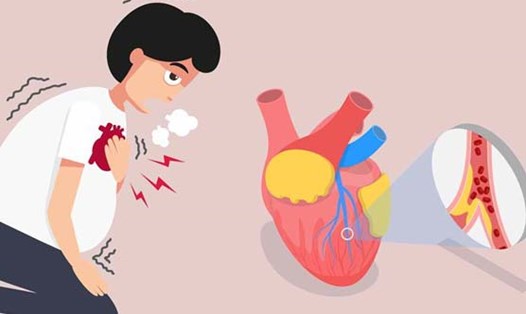What is a heart attack?
A heart attack (or myocardial infarction) occurs when the blood supplying oxygen to the heart muscle is blocked. If left untreated, that heart muscle will begin to die a possible result of heart failure, arrhythmia or death, according to Onlymyhealth.
Dr Saurabh Chopra, a cardiologist at Fortis Manesar Hospital (India), said: "Heart attack is not just a disease of the elderly. More and more young people, even under the age of 40, are experiencing heart attacks due to chronic stress, unhealthy lifestyles, and lack of regular health check-ups.
Causes and common risk factors
Although age and family history are unchangeable factors, most of the causes of current heart attacks come from lifestyle:
Smoking
High blood fat
High blood pressure
Diabetes or prediabetes
Prolonged stress
Lack of movement
A diet high in bad fats, low in fiber
Sleep disturbances (such as sleep apnea)
Drinking too much alcohol
Obesity
Common symptoms of a heart attack
A heart attack does not always happen clearly as the film describes. However, common symptoms include:
Pain or chest tightness (feeling as Suppressed, suffocated)
Pain spreading to the shoulder, left arm, neck, jaw or back
Difficulty breathing
Nausea or vomiting
Cold sweat
Feeling anxious, scared for unknown reasons
5 silent signs that are easily overlooked
Some early symptoms of a heart attack can be mistaken for fatigue, digestive disorders or common stress:
Prolonged fatigue despite adequate rest
If you always feel exhausted for unknown reasons, don't take it lightly. This may be a sign that the heart is not working effectively in pumping blood and oxygen to the body.
Difficulty breathing when exercising lightly
climbing stairs or doing light housework but having low breathing, it is not only a sign of poor physical strength but can be a warning about cardiovascular problems.
Pain in the jaw, neck or upper back
Heart attack is not only experienced in the chest. Many cases have widespread pain, which is not characteristic, confused with muscle pain or stomach pain.
Lens, ankles or feet
When the heart does not pump blood effectively, fluid can build up in the lower limbs, causing prolonged swelling.
Irregular heartbeat or a feeling of poor heartbeat
Some people experience arrhythmia of unknown cause, especially at rest or after light exercise.
How to protect your heart every day?
Here are some principles to help reduce your risk of heart attack:
Exercise 30 minutes a day, at least 5 days/week
Keep a healthy weight
Eat plenty of green vegetables, fiber, reduce salt and bad fat
Avoid cigarettes and alcohol
Get enough sleep and manage stress
Regular health check-ups every 6-12 months









